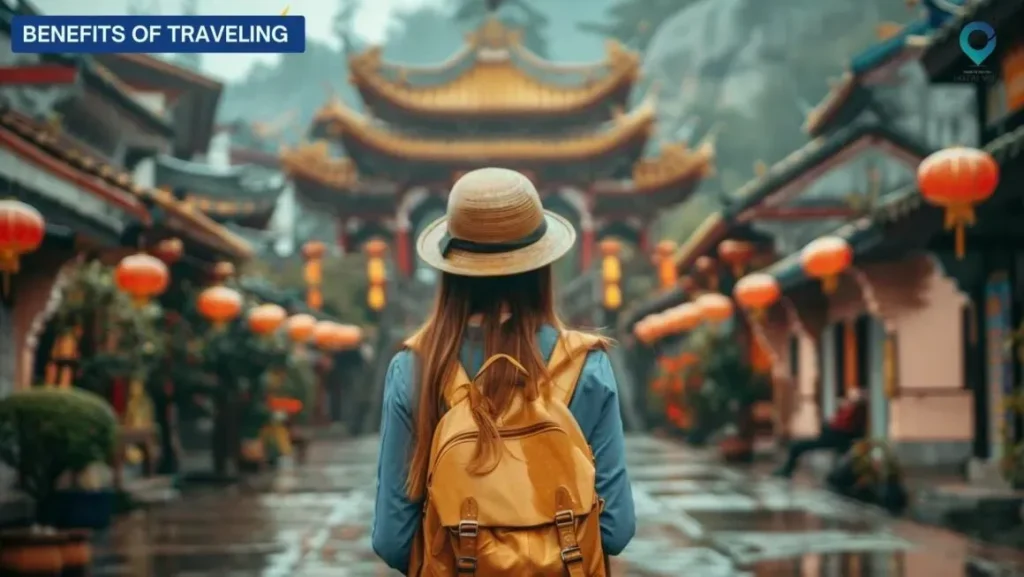Experiencing Culture invites you to move beyond checklists and discover travel as dialogue rather than a mere itinerary. This approach connects you to cultural travel experiences that reveal the heartbeat of a place through people, places, and practices. You’ll savor local cuisine and traditions, listen to conversations in markets, and watch rituals unfold, turning meals into memory and history into flavor. These moments offer immersive cultural experiences that slow the pace and invite you to notice textures, sounds, and symbols that define a community. Through encounters with art and heritage of a people, and by learning how daily life shapes identity, you begin to understand a culture through travel.
Viewed from another angle, culture becomes a living dialogue shaped by local voices, shared meals, and handcrafts. Authentic encounters reveal a web of meaning through everyday life, markets, performances, and sacred spaces. By observing and participating—whether cooking, weaving, or listening to elders—you gain insights into values, resilience, and communal memory. A well-crafted itinerary uses related themes such as heritage, artistry, foodways, and social rituals to connect travelers with a place’s soul.
Experiencing Culture in Depth: Immersive Cultural Experiences Through Local Cuisine and Traditions
Experiencing culture goes beyond ticking off monuments; it invites you to listen for the stories behind a recipe, to watch the hands that craft a pot, and to breathe in the scents of a simmering broth at a neighborhood stall. In the realm of cultural travel experiences, markets become classrooms and family kitchens become archives where memory is prepared and shared. When you lean into local cuisine and traditions, every bite and ritual becomes a doorway into the values, history, and everyday resilience of a people, offering an intimate counterpoint to glossy travel brochures.
To cultivate immersive cultural experiences, approach interactions with curiosity and humility: take part in a hands-on workshop with artisans, attend a local festival, or simply share a conversation over tea with an elder. By observing how dishes travel across continents through trade, you trace a web of connections that reveals the art and heritage of a people as living practice, not relics. This perspective helps you understand how taste, technique, and ritual encode identity and community across generations.
Understanding a Culture Through Travel: Context, Respect, and Reflection
Understanding a culture through travel starts with context: reading histories, listening to local voices, and seeking guided experiences that foreground community perspectives over a single narrative. You’ll discover how rituals, crafts, and urban spaces carry meaning when explained by people whose lives are rooted there. Engaging with art and heritage as living expressions—through gallery visits, performances, or street art—lets you see how a people’s memory and aspiration shape places, offering a tangible path to understand a culture through travel.
Ethical travel means asking permission, avoiding stereotypes, and supporting sustainable practices that benefit the community. By choosing operators who collaborate with local artisans, respecting sacred spaces, and selecting experiences that share ownership of stories, you enrich your cultural travel experiences while leaving a positive footprint. The result is a more nuanced appreciation of the art and heritage of a people, a deeper sense of place, and a durable respect that you carry home long after the trip ends.
Frequently Asked Questions
What is Experiencing Culture, and how can I plan trips that emphasize cultural travel experiences?
Experiencing Culture is more than sightseeing; it invites you to step into daily life to learn about people, their art, cuisine, and rituals. To plan trips around cultural travel experiences, prioritize immersive activities such as guided conversations with locals, hands-on workshops with artisans, neighborhood walks, and shared meals. Seek experiences that reveal values, history, and resilience, and pace your itinerary to absorb rather than rush. This approach helps you understand a culture through travel while respecting communities and leaving a positive footprint.
How can I respectfully engage with local cuisine and traditions to understand a culture through travel?
Respectful engagement with local cuisine and traditions starts with curiosity and consent. Seek opportunities like market tastings, cooking classes, family meals, or workshops led by locals to experience local cuisine and traditions firsthand. Observe preparation methods, ask thoughtful questions, and participate with humility to connect with the art and heritage of a people. These moments foster immersive cultural experiences and help you understand a culture through travel, while supporting sustainable exchanges.
| Aspect | Core Idea | Practices / Examples | Impact / Why It Matters |
|---|---|---|---|
| Purpose of Experiencing Culture | Move beyond sightseeing to understand daily life, history, and identity through real experiences. | Listen to stories, savor local flavors, observe art and rituals, engage with locals. | Leads to a richer, more nuanced understanding of place and people. |
| The Traveler’s Lens | Depth over breadth; neighborhoods become classrooms, markets open galleries, everyday exchanges become living archives. | Ask what a city can teach about its people; prioritize immersive experiences over generic highlights. | Fosters deeper connection and insight into values, resilience, and everyday life. |
| Food as a Portal | Cuisine as a language; meals are social rituals that bind communities. | Observe preparation, trace spice routes, share meals, visit markets, and explore family kitchens. | Reveals history, migration, and identity; makes memory tangible through taste and sharing. |
| Art and Heritage | Art and heritage are living expressions integrated in daily life, not just relics. | Attend workshops, performances, observe crafts, visit galleries, and engage with symbols and stories. | Deepens respect for culture’s evolving roots and collective memory. |
| Understanding Through Travel | Context and respect are essential to meaningful cultural understanding. | Read histories, listen to local voices, join guided experiences led by locals, practice mindful travel. | Promotes humility, reduces stereotypes, and supports authentic narratives. |
| Planning a Cultural-Itinerary | Plan with clear intent to learn about specific aspects of a culture. | Include food-and-market tours, artisan workshops, museums/heritage sites, and local music or events; pace to absorb. | Delivers focused, balanced experiences and meaningful learning rather than overload. |
| Community-Based Interactions | Human connection is central; engage with generosity and curiosity, with consent and sensitivity. | Share meals, ask about family rituals, follow local etiquette, avoid extractive photography or behavior. | Creates sincere exchanges and memories that are respectful and sustainable for host communities. |
| Evening Immersion | Festivals, night markets, and performances distill a culture’s essence. | Attend performances, savor tempo and mood, ask respectful questions about symbolism and origins. | Transforms art and heritage into personal, living experiences rather than distant abstractions. |
| Sustainable and Ethical Travel | Travel should benefit communities and ecosystems, not overwhelm them. | Choose operators with community partners, buy directly from makers, protect sacred spaces and resources. | Supports local livelihoods and preserves culture for future generations. |
| Case Studies | Micro-encounters illustrate culture in daily life beyond curated attractions. | Fishermen, markets, and crafts co-ops offer hands-on, authentic learning moments. | Shows immersive cultural experiences that linger after the trip. |
Summary
Experiencing Culture invites travelers to slow down and engage with the people, places, and practices that define a locale. This approach reframes travel as a continuous, curious dialogue with a place, where neighborhoods become classrooms, markets turn into living galleries, and everyday exchanges reveal shared humanity. By prioritizing context, consent, and curiosity—through food, art, and community interactions—you cultivate a deeper understanding of identity, belonging, and the intricate threads that connect people across borders. Ultimately, this descriptive journey through culture transforms travel into a meaningful practice that lingers long after the destination is left behind.



